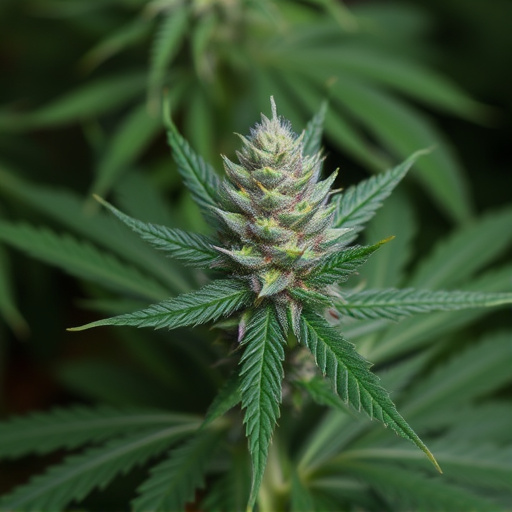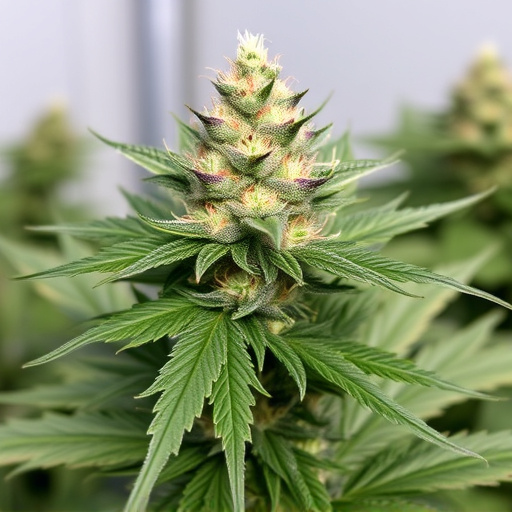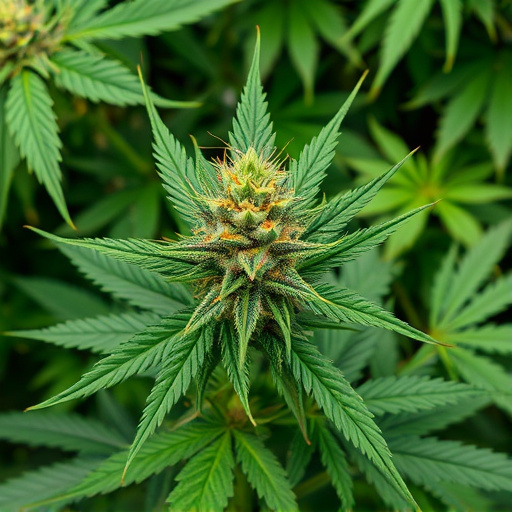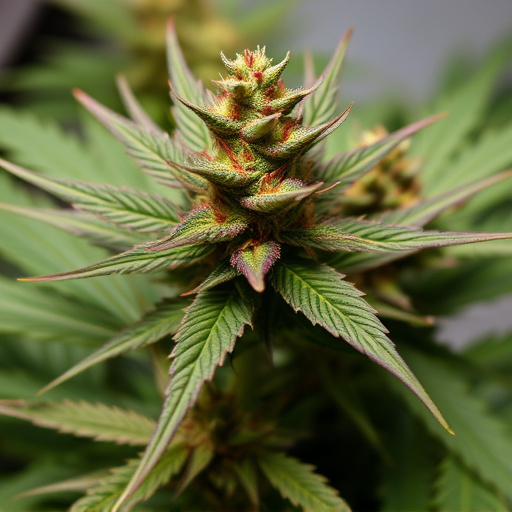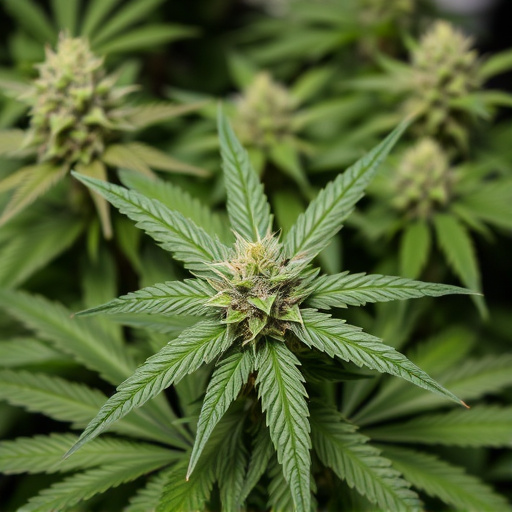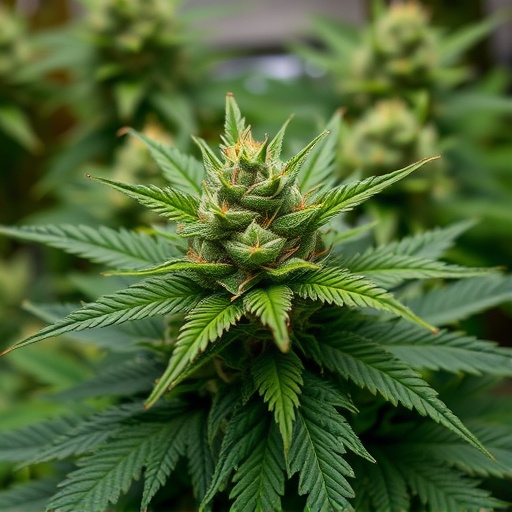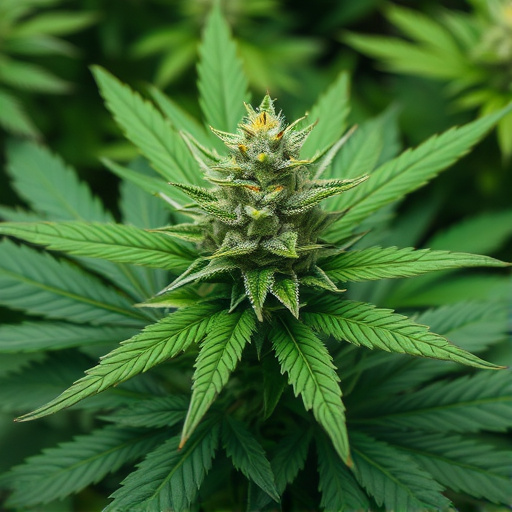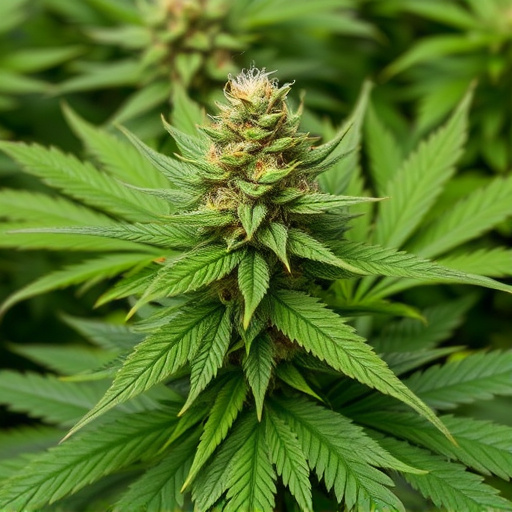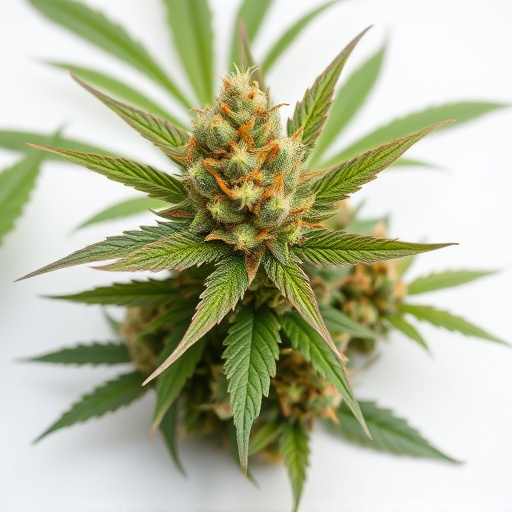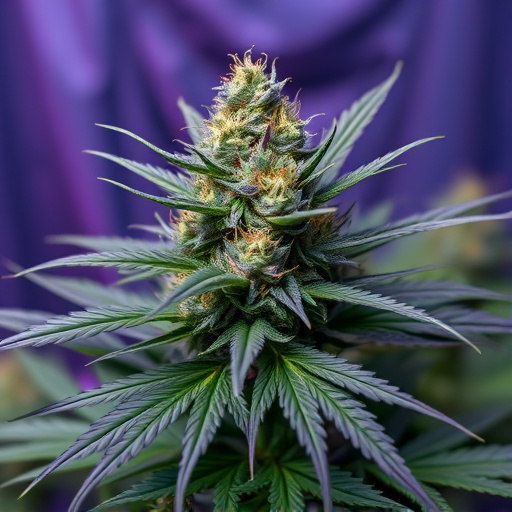Cannabis flower's diverse chemicals interact with our bodies' endocannabinoid system, potentially alleviating symptoms of mental health conditions like anxiety, depression, and PTSD. High CBD or unique cannabinoid profiles in specific medical marihuana strains offer tailored relief. Terpenes further modulate effects. While promising, deeper exploration is needed to understand specific compound effects on various mental health conditions, develop personalized treatments, assess long-term safety, and explore alternative delivery methods. Research into cannabis interactions with medications is also crucial for safe co-use, particularly in clinical settings.
Can cannabis flower offer a natural path to improved mental well-being? As the conversation around cannabis continues to evolve, scientific interest in its therapeutic potential deepens. This article explores the potential benefits of cannabis flower for mental health, delving into specific medical marijuana strains shown to alleviate symptoms of conditions like anxiety and depression. We also consider current research limitations and future directions, offering a balanced look at this burgeoning field.
- Understanding Cannabis Flower and Its Potential Benefits for Mental Health
- Medical Marijuana Strains for Specific Mental Health Conditions
- Considerations and Future Research Directions
Understanding Cannabis Flower and Its Potential Benefits for Mental Health
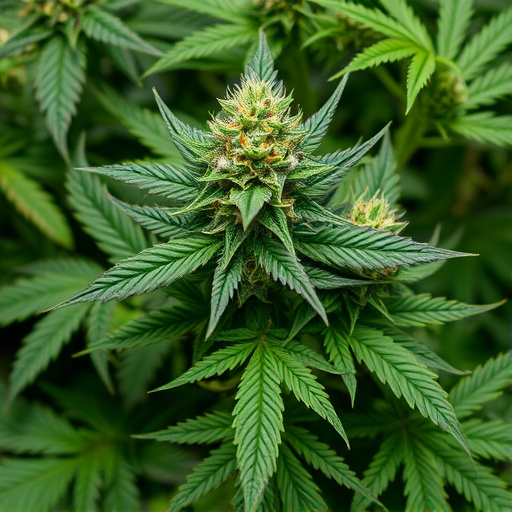
Cannabis flower, derived from the plant Cannabis sativa, has long been known for its diverse chemical composition and potential therapeutic effects. The various compounds within cannabis, such as cannabinoids (including THC and CBD) and terpenes, interact with our bodies’ endocannabinoid system, which plays a significant role in regulating mood, memory, pain perception, and appetite. This interaction forms the basis of cannabis’s potential benefits for mental health.
Research suggests that specific medical marihuana strains high in CBD or certain cannabinoid profiles may help alleviate symptoms of conditions like anxiety, depression, and post-traumatic stress disorder (PTSD). The unique chemical makeup of different cannabis strains offers a promising avenue for personalized medicine, where individuals can find relief tailored to their specific mental health needs. However, it’s crucial to approach this topic with scientific rigor, considering both the potential advantages and any adverse effects, as individual responses to cannabis can vary significantly.
Medical Marijuana Strains for Specific Mental Health Conditions
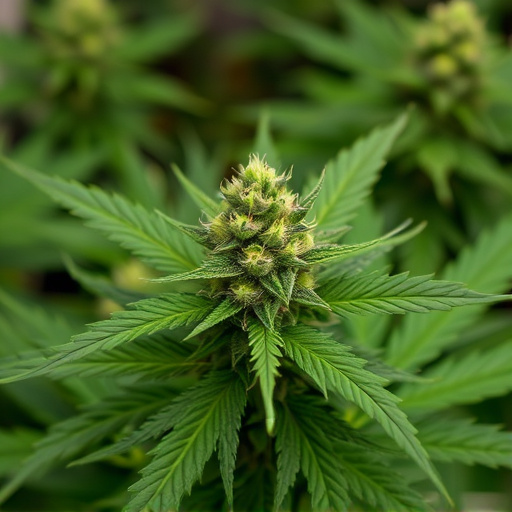
Cannabis flower, with its diverse compounds and terpenes, offers a range of potential benefits for various mental health conditions. Different medical marijuana strains are specifically cultivated to target specific symptoms associated with disorders like anxiety, depression, post-traumatic stress disorder (PTSD), and even sleep disturbances. For instance, high CBD (cannabidiol) strains have gained popularity for their calming effects and ability to reduce anxiety without inducing psychoactive experiences. These non-intoxicating compounds interact with the endocannabinoid system in the brain, helping to regulate mood and promote relaxation.
Additionally, specific terpenes found in cannabis can enhance or modulate its effects. Myrcene, a common terpene in many medical marijuana strains, is known for its sedative properties, making it potentially beneficial for insomnia and anxiety. Limonene, another terpene, has been linked to improved mood and cognitive function, offering potential support for individuals with depression or ADHD. When choosing medical marijuana strains, understanding the unique profiles of different varieties can help users find effective relief tailored to their specific mental health needs.
Considerations and Future Research Directions
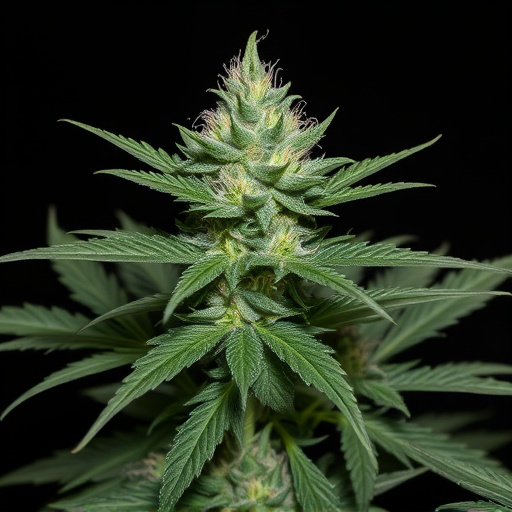
While cannabis has shown promise in improving mental health, there are several considerations and future research directions to explore further. One key area is understanding the specific compounds and their effects on different mental health conditions. Different medical marihuana strains contain varying levels of THC and CBD, among other cannabinoids, which can significantly impact individual responses. More studies are needed to identify personalized treatments tailored to specific needs.
Additionally, long-term effects and safety profiles of regular cannabis use should be investigated, particularly for vulnerable populations such as adolescents and the elderly. Exploring alternative delivery methods, like vaporizers or edibles, could also enhance control over dose and intake. Further research into the interactions between cannabis and existing medications is crucial to ensure safe and effective co-use, especially in clinical settings.
Cannabis flower, with its diverse compounds and terpenes, shows promise in aiding mental health treatments. The article has explored how specific medical marijuana strains can target conditions like anxiety, depression, and PTSD. While research is still evolving, the potential for cannabis to enhance traditional therapies and improve overall well-being is compelling. Future studies should focus on standardization, dosage, and long-term effects to fully unlock its therapeutic potential, particularly in the realm of medical marihuana strains.
